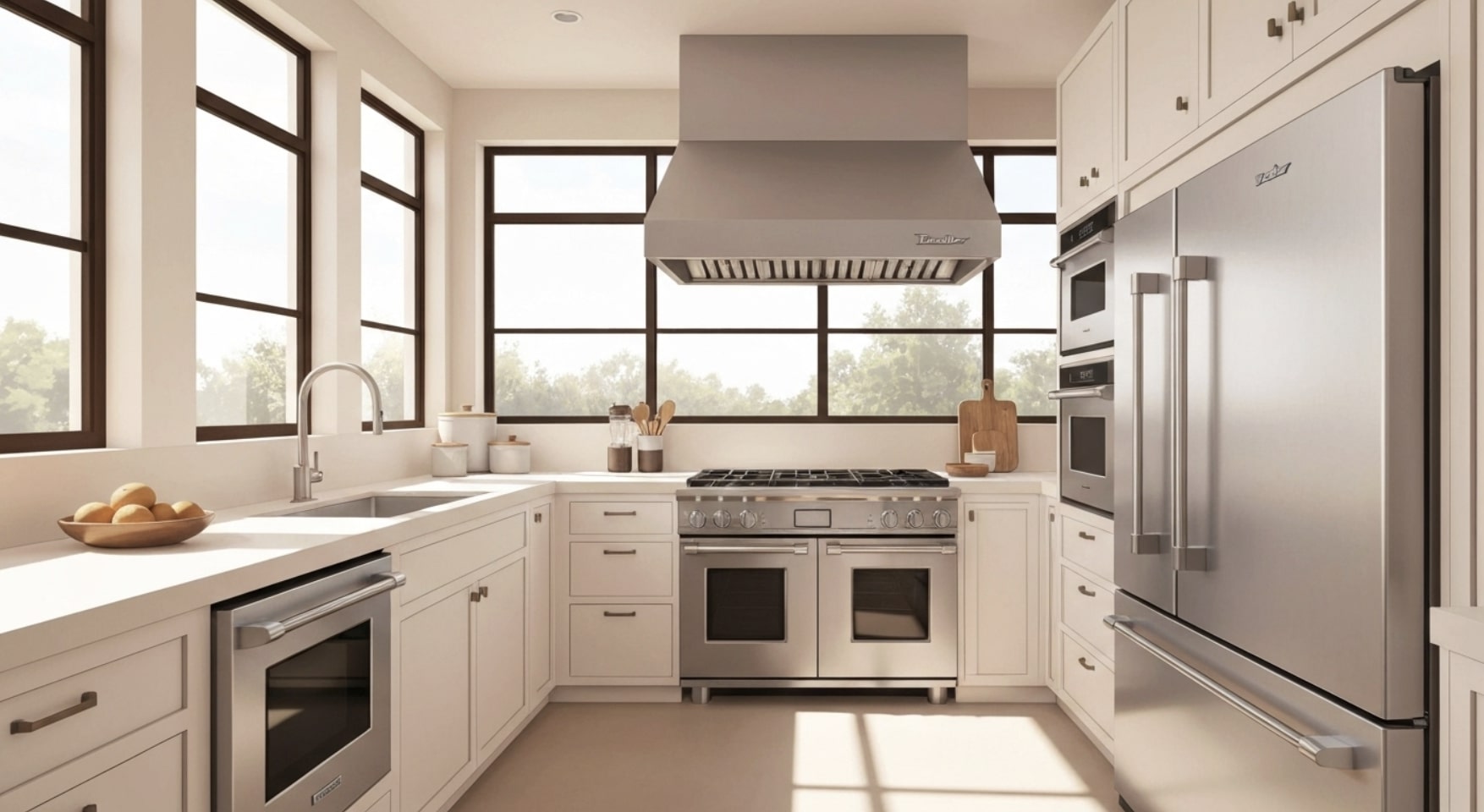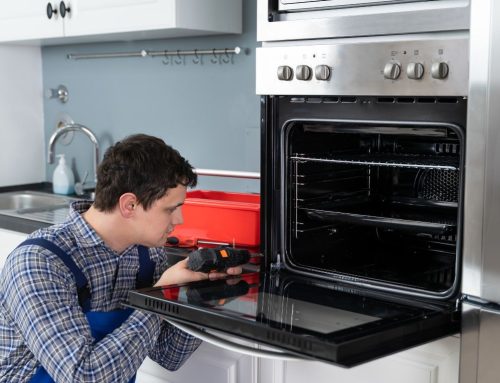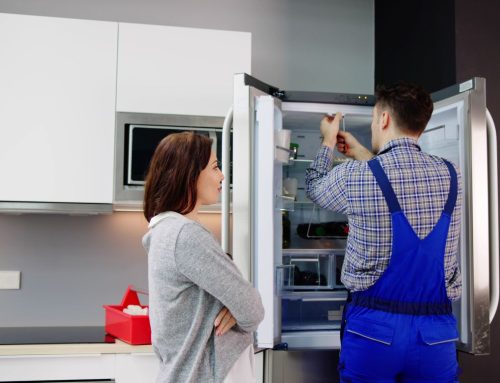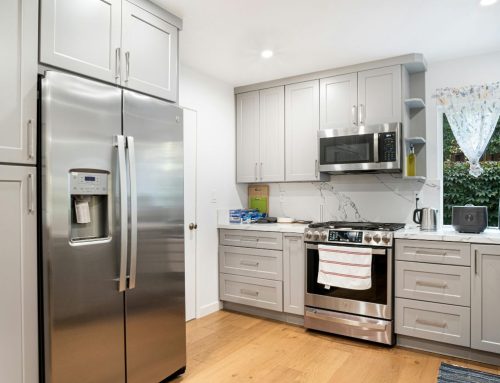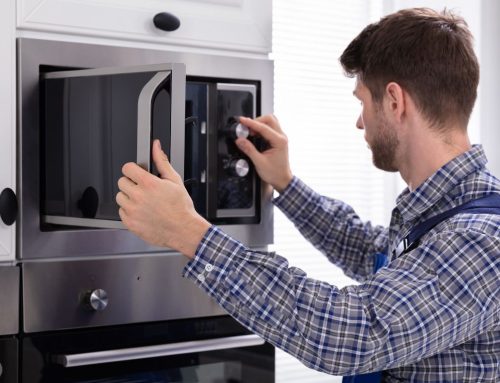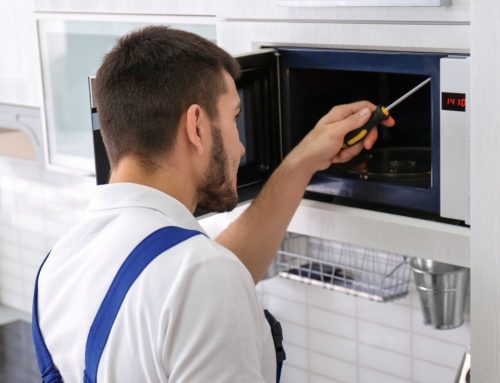Your Thermador appliances are the centerpiece of your kitchen, blending luxury design with exceptional performance. You invested in the best, and you expect them to last. However, even these high-end machines can suffer from breakdowns if not used correctly. Many common problems stem from simple, everyday misuses that you might not even be aware of. This guide will walk you through the most common Thermador appliance misuses in Orange County homes, helping you avoid costly appliance repair and keep your Thermador running flawlessly.
Why OC Homeowners Are Prone to Certain Misuses
The vibrant, fast-paced lifestyle in Orange County can sometimes contribute to unintentional appliance misuse. With busy schedules, taking a moment to read the user manual or perform simple maintenance checks often falls to the bottom of the to-do list. This can lead to habits like using incorrect settings or overlooking warning signs.
Furthermore, OC’s climate plays a role. The long, hot summers mean your refrigerator’s compressor and condenser are already working harder to keep things cool. When you add common misuses like overloading the unit or setting the temperature too low, you’re putting extreme strain on the system, increasing the risk of a breakdown.
Taking preventive steps is key. Simple habits like scheduling annual professional maintenance can catch issues before they escalate. Being mindful of how you load your refrigerator and use your oven’s features can make a world of difference in avoiding an unexpected call for appliance repair.
Typical Misuses of Thermador Refrigerators
Your Thermador refrigerator runs nonstop, making it one of your hardest-working appliances—and also one of the most misused. Simple setup mistakes and poor food storage can cause performance issues and costly repairs. Common errors like incorrect temperature settings or overpacking can prevent efficient operation. Here are two frequent misuses to avoid.
Common Temperature Setting Errors
Setting the right temperature in your Thermador refrigerator is a delicate balance, and getting it wrong is a very common problem. Many people believe that colder is always better and set the thermostat to its lowest possible setting. However, this can cause your food to freeze, damage delicate produce, and force the compressor to run constantly, wasting energy and accelerating wear.
On the other hand, setting the temperature too high won’t keep your food safely chilled, leading to spoilage and potential health risks. Your refrigerator has to work hard to combat the ambient warmth of your kitchen, and an incorrect setting disrupts its ability to maintain a stable internal environment.
To avoid these issues, it is important to set your temperatures correctly. Here are a few tips:
- Ideal Refrigerator Temperature: Aim for 37°F (3°C).
- Ideal Freezer Temperature: Set it to 0°F (-18°C).
- Avoid Extreme Settings: Don’t set it to the coldest level unless necessary.
- Use a Thermometer: Check the accuracy of your settings with a separate appliance thermometer.
Ignoring Proper Storage Practices and Overloading
Have you ever packed your refrigerator so full that you can barely close the door? While it might seem efficient, overloading your Thermador is one of the quickest ways to cause problems. These refrigerators are designed for optimal airflow, and when you block the vents with groceries, you prevent cold air from circulating evenly.
This leads to “hot spots” where food isn’t kept at a safe temperature, increasing the risk of spoilage. At the same time, the appliance’s sensors may detect that it’s not cool enough, causing the compressor to run continuously. This overuse not only drives up your energy bill but also puts immense strain on the motor and other critical components.
To prevent this, make sure you can see the back wall of your refrigerator. Leave space between items and keep the air vents clear. Proper storage doesn’t just keep your food fresh; it protects your appliance from the kind of wear and tear that leads to an avoidable appliance repair visit.
Frequent Thermador Range & Cooktop Mistakes
Your Thermador range and cooktop are built for precision and power, but they need proper use to perform their best. Common mistakes—such as using unsuitable cookware or skipping basic cleaning—can cause poor performance or damage, leading to costly repairs. These oversights can undermine your cooktop’s advanced features. Here’s how misuse can impact your appliance.
Incorrect Pan Usage and Burner Operation
Using the right pan for the right burner is more important than you might think. Thermador ranges often feature powerful, high-BTU burners like the iconic Star® Burner, which are designed for specific types of cookware. Placing a small pan on a large, powerful burner wastes energy and can damage the pan’s handle and sides from excess heat.
Conversely, using a pan that is too large for the burner can result in uneven cooking, as the heat won’t distribute properly across the entire base. Using warped or uneven cookware is another common mistake that prevents good contact with the cooking surface, especially on electric or induction cooktops, leading to inefficient heating.
Following these simple guidelines can improve your cooking and protect your appliance.
| Pan & Burner Situation | Why It’s a Problem |
|---|---|
| Small pan on a large burner | Wastes gas/energy and can scorch pan handles. |
| Large pan on a small burner | Leads to unevenly cooked food and slow heating. |
| Warped-bottom pan | Creates poor contact, reducing heat transfer and efficiency. |
| Wrong material on induction | The pan won’t heat up if it’s not magnetic (e.g., copper, aluminum). |
Failing to Clean or Maintain Burners Regularly
It’s easy to wipe down your cooktop after dinner, but how often do you deep-clean the burners? Spilled sauces, grease splatters, and food crumbs can build up and clog the burner ports and ignition systems. This is one of the most common problems we see with gas ranges.
When the igniter is covered in grime or the burner ports are blocked, you might hear that frustrating “clicking” sound without the flame ever lighting. This blockage prevents gas from flowing and igniting properly. Over time, this buildup can cause permanent damage to the ignition system or lead to uneven flames that affect your cooking.
Regularly removing the burner caps and grates to clean them with a soft brush and mild soap is essential. Keeping these components free of debris ensures a clean spark, a steady flame, and reliable performance, helping you avoid a service call for appliance repair.
Key Ways Thermador Ovens Are Improperly Handled
A Thermador oven delivers precise baking, roasting, and broiling, but proper use is crucial. Common mistakes can cause inaccurate temperatures, damage, and uneven results—often leading to service calls. Simple errors, from cookware choice to feature use, can strain your oven and shorten its lifespan. Here’s how mishandling affects performance and durability.
Using the Wrong Cookware or Utensils
The cookware you place inside your Thermador oven matters. Using materials that are not designed for high heat can lead to damage not just to the dish but to the oven itself. For example, placing cookware made of thin glass or materials not rated as oven-safe can cause it to shatter from thermal shock, creating a dangerous and messy situation.
Another common mistake is placing aluminum foil on the bottom of the oven floor to catch spills. While it seems like a smart cleanup hack, foil can reflect heat unevenly or, even worse, melt onto the oven’s enamel surface, causing permanent damage that requires a costly appliance repair. It also blocks airflow, leading to poor baking results.
To keep your oven in top condition, always use appropriate cookware.
- Avoid Non-Oven-Safe Glass: It can shatter under high heat.
- Never Use Foil on the Oven Floor: It can melt and damage the interior finish.
- Ensure Proper Airflow: Don’t use oversized pans that block air circulation.
- Check Your Manual: Refer to your Thermador guide for recommended cookware types.
Misusing Oven Features and Neglecting Regular Checks
Thermador ovens come with advanced features, but misusing them can cause problems. The self-clean function, for example, is a common source of trouble. Running it too frequently or right before a major holiday can be risky. The extremely high temperatures generated during the cycle can stress electronic components, fuses, and control boards, sometimes leading to a complete system failure.
Neglecting regular checks is another form of misuse. Ovens can lose their temperature accuracy over time. If you notice your recipes are taking longer to cook or are baking unevenly, your oven may need calibration. Ignoring this can lead to frustrating results and wasted ingredients.
A simple preventive step is to test your oven’s temperature with a standalone oven thermometer. If the reading is off by more than 15-20 degrees, it’s a sign that your appliance needs professional attention. Proper use of features and periodic checks will help keep your Thermador oven performing reliably.
Recognizing the Signs of Appliance Misuse
Your appliances communicate through their performance, sounds, and even smells. A sudden change is often the first sign of a problem. Is your usually quiet refrigerator now making a loud buzzing or humming noise? This could indicate a strained compressor, often a result of overloading or blocked coils.
A drop in performance is another red flag. For instance, if your oven takes much longer to preheat or your food isn’t cooking evenly, it could be a sign of a failing heating element or a thermostat issue, potentially worsened by improper use.
Pay attention to these tell-tale signs that your appliance is being used incorrectly or is in need of service:
- Constant Clicking: A gas cooktop that clicks without lighting may have dirty burners.
- Food Spoiling Quickly: Your refrigerator might not be cooling effectively due to poor airflow.
- Loud Noises: A refrigerator motor that runs constantly is a clear sign of strain.
- Burning Smells: An unusual smell from your oven could indicate food spills or an electrical issue.
Early Signs that Signal You Need Professional Attention
Subtle warning signs, like excessive condensation in your refrigerator or glitches in the control panel, often signal a need for professional appliance repair. Issues such as a deteriorating door seal, flickering displays, or error codes point to underlying problems that won’t resolve on their own. Catching these early—like noticing cracked gaskets, water leaks, or inconsistent oven temperatures—can prevent bigger failures and save you from costly repairs later.
Protect Your Investment With Thermador Repair Group!
Even with the best care, the effects of long-term misuse can eventually lead to a breakdown. When your luxury Thermador appliance falters, you need more than a generic fix—you need specialized expertise. At Thermador Repair Group, we are dedicated to providing expert Thermador appliance repair for homeowners throughout Orange County. Our technicians understand the intricate systems inside your high-end appliances and can diagnose issues caused by everyday misuse or component failure. We use only genuine parts to ensure your appliance is restored to its original performance standards.
Don’t let a malfunctioning appliance disrupt your life. We prioritize timely and effective service to get your kitchen back to full working order. From a refrigerator that’s not cooling to an oven with a faulty control panel, our team has the skills and experience to handle any repair. Taking the preventive step of calling a professional at the first sign of trouble protects your investment and ensures your Thermador appliances continue to deliver the performance you expect for years to come.
Conclusion
In summary, understanding the common Thermador appliance misuses in Orange County homes can significantly enhance their longevity and performance. By recognizing the specific mistakes that homeowners often make—such as incorrect temperature settings, improper cookware usage, and neglecting maintenance—you can prevent costly breakdowns and enjoy the full benefits of your premium appliances. Being mindful of these issues not only protects your investment but also elevates your cooking experience. For more tips and insights, feel free to explore our blog post on How Tech Changes the Game When It Comes to Thermador Repairs in Seattle. Your journey to a well-functioning kitchen starts here!
Frequently Asked Questions
What are the most common mistakes that shorten the lifespan of a Thermador appliance?
The most common mistakes include overloading the refrigerator, which strains the compressor; failing to clean cooktop burners, which leads to ignition problems; using the oven’s self-clean feature improperly; and ignoring deteriorating door seals. These habits accelerate wear and tear, leading to premature appliance repair needs for your Thermador appliances.
Can improper use of settings cause permanent damage?
Yes, improper settings can cause permanent damage. For example, running a refrigerator at its coldest setting constantly can burn out the compressor. Likewise, misusing an oven’s self-clean cycle can fry electronic control boards. These common problems often result in costly and complex appliance repair for your Thermador appliances.
What preventive habits help avoid accidental misuse in busy OC homes?
To avoid misuse, take a few minutes to learn your appliance’s key functions. Establish a simple routine for cleaning burners and checking door seals. Avoid overloading your refrigerator and be mindful of proper airflow. Scheduling an annual professional maintenance check is also a great preventive habit for all Thermador appliances.

